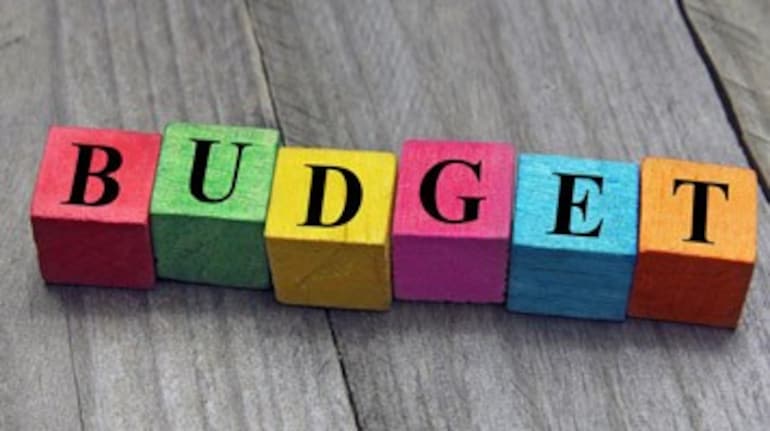



Union Budget 2015-16 analysis by Prabhudas Lilladher:
No big bang announcements: The Budget did not make any big bang announcements, while stressing the need for increasing growth and laying out a roadmap for accelerating growth, enhancing investment and passing the benefit of the growth benefits to the common man. While the GDP estimates as per the revised methodology for FY15 is at 7.4 percent, for FY16 it is targeted at 8-8.5 percent , and a road map is laid out for improving the growth to double digits going forward. While the fiscal deficit for FY15 was maintained at 4.1 percent of GDP, the target set last year to achieve a fiscal deficit of 3.6 percent in FY16 have been revised to 3.9 percent with a road map to achieve a fiscal deficit of 3 percent of GDP by FY18. The additional fiscal spend is expected to go to infrastructure spending which in turn is expected to spur growth.
Capital expenditure to lead to economic recovery: The Finance Minister have assumed a gross tax revenue growth of 15.9 percent in FY16. This translates into an expectation of around 8-8.5 percent growth in the economic growth, and this expected to be achieved through a 35 percent increase in plan capital expenditure, while the total plan expenditure has remained neutral.
Gross tax collection estimates an increase of 14.6 percent to Rs 13.6 lakh crore while the direct taxes are estimated to go up by 13.4 percent and the indirect taxes are expected to see an increase of 19.2 percent. Within the direct taxes, corporate taxes are expected to increase by 10.5 percent to Rs 4.7 lakh crore and the income tax by 17.5 percent to Rs 3.2 lakh crore. Within the indirect taxes, Excise duties are expected to increase by 23.9 percent to Rs 2.29 lakh crore, Customs duty by 15.3 percent to Rs 2.08 lakh crore and the Service tax by 24.8 percent to Rs 2.09 lakh crore.
The subsidies have not seen any increase in FY16. While both the food and fertilizer subsidies have been maintained more or less at the same level as in FY15, the petroleum subsidy has seen a decrease of 50 percent owing to lower crude oil prices. With the beginning of direct transfer of LPG subsidies and low crude prices, the maneuverability of the government to provide less has been high.
The Budget has seen a larger devolution to states from the gross tax collection, and has increased to 36.0 percent in FY16 from a level of 26.9 percent in FY15, thereby implementing the recommendation of the 14th Finance commission which had recommended for passing on higher share of the tax collection to the states.
The total plan expenditure is expected to be at the same level as in FY15 at Rs 4.65 lakh crore versus Rs 4.67 lakh crore in FY15, the capital plan expenditure has seen an increase of 33.8 percent to Rs 1.35 lakh crore versus Rs 1.01 lakh crore.
Defense continues to see a thrust in terms of capital expenditure and is expected to increase by 15.4 percent to Rs 94,600 crore. The major increases in the non plan expenditure stems from interest payments, up 10.9 percent while the food subsidy and fertilizer subsidy has been maintained more or less at the same level as at FY15.
Proceeds from the non tax revenues including telecom fees and dividends & profits are expected to see only a modest growth of 1.8 percent in FY16.
GST is estimated to be implemented from 01 April 2016.
Reducing the corporate taxation by 500 bps to the ASEAN levels of 25 percent, while removing exemptions is one of the key steps taken to simplify the corporate tax mechanism and improve the effective tax rate of the corporate.
With the changes made in the personal income tax exemption levels, with proper tax planning an individual tax payer with an income of Rs 445,000 will be able to have a zero tax.
Tobacco and tobacco products have been seeing heavy taxation in the last few years and this budget too has seen an increase in the same.
The government continues to bring in more services to the tax net and we have seen additional services like theme parks, water parks, rides, toll manufacturers of liquor etc being brought into the service tax net thereby broad basing the target to tax at the consumption levels. Measures against black money could lead to increased tax collections.
We have seen a steady reduction in the capital infusion by the government in the PSU banks. The allocation for FY16 is at Rs 7,900 crore is lower than in FY15.
Creation of Bankruptcy protection law is an important move.
Budget Top Picks: Ashok Leyland, Tata Motors, Maruti Suzuki, Larsen & Toubro, Ashoka Buildcon, Sadbhav Engineering, Ultratech Cement and JK Lakshmi, Britannia Industries, Infosys, Tata Consultancy Services, Persistent Systems, Aurobindo Pharma and Dr Reddys Laboratories, with a Reduce in ITC.
Disclaimer: The views and investment tips expressed by investment experts/broking houses/rating agencies on moneycontrol.com are their own, and not that of the website or its management. Moneycontrol.com advises users to check with certified experts before taking any investment decisions.
Discover the latest Business News, Sensex, and Nifty updates. Obtain Personal Finance insights, tax queries, and expert opinions on Moneycontrol or download the Moneycontrol App to stay updated!